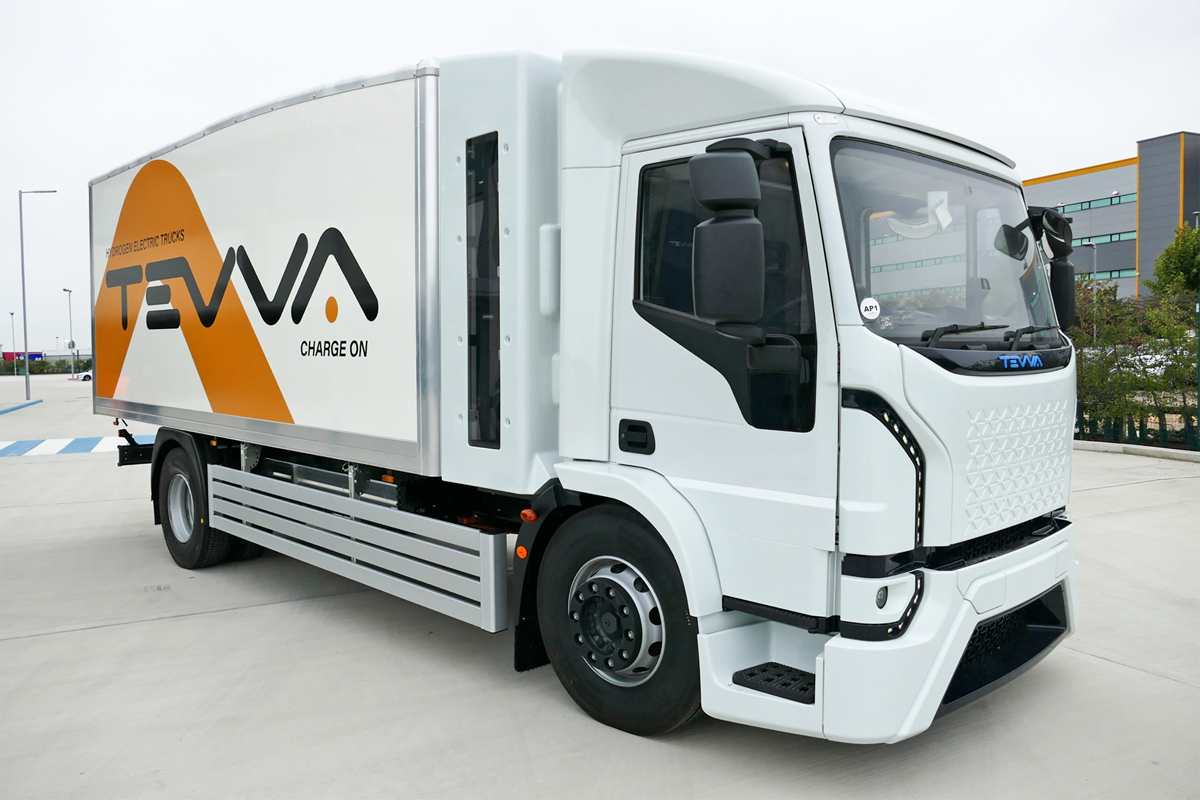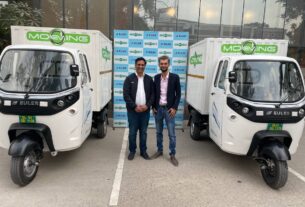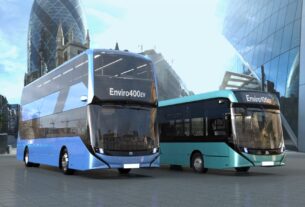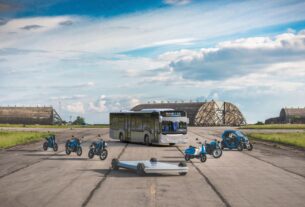David Thackray, Director, Marketing, Tevva shares with Sarada Vishnubhatla how the company is capable of single-handedly change the market face in Europe with its long-range blended energy solutions targeted at electric trucks.

The EV segment has been a crucial area of focus for Tevva in the last decade or more. The intention has been to create a product that is up the value chain in the EV domain. Founded in 2013 by Asher Bennett, a former Israeli Navy submarine officer, Tevva is driven by his vision to offer solutions in the ‘unserved’ truck segment. His experience of handling operations of electric motor-run submarines, came in handy in managing energy in heavy goods trucks in terms of energy consumption, and how it can be utilized efficiently.
David Thackray, Director, Marketing, Tevva shares: “Our blended energy solution where we use batteries as the core energy with the fuel cell as the supplementary energy, ensures that the vehicle can run a long range – up to 500 kilometers – at the lowest cost and with the lowest carbon footprint possible.”
Launch of 3rd-generation vehicles
In line with the concept, Tevva displayed their third-generation vehicles at the IAA Transportation show in Hannover, Germany in late September 2022, starting with a 19-ton fuel cell electric truck. Back home, Tevva has already begun the production of 7.5-ton batteries, and will soon – in all probability the spring of 2023 – also get into manufacturing 7.5-ton fuel cell vehicles.
Thackray says: “The real message here is that Tevva has been diligently working on its engineering, and testing, and now we are in production of both left- and right-hand drive for customers in the UK and Europe. We are making a statement that this is not a promise for the future, but a promise for now.”
Though Tevva started with diesel range extenders, the company has now moved on to pure zero-emission hydrogen fuel cell range extenders, with a keen focus on the R&D to take care of key factors such as the range and the delivery of range within a payload.
He explains them: “When engineering an electric vehicle, there are four constraints that compete with each other that need to be optimized – which are the capital cost, operating costs, and range followed by payload. The challenge is that more range needs more energy, which typically means more unladen weight. This translates into unladen weight versus payload. More batteries will have a negative impact on the capital cost. But, in a fuel cell, more energy can be obtained with less weight, but the operating cost will be higher, as against using batteries where more energy means more weight, with the advantage of low operating cost.”
Manufacturing strengths
Tevva’s first manufacturing base that has been recently completed is near the Port of London, outside of London, UK and the next manufacturing facility is being planned to be in mainland Europe. Their next generation technology – be it the drive trains, the batteries, the battery controllers, the battery management systems, or the software – are all designed and built in-house. The wiring looms and most of the power electronics are also designed in-house but are contract-manufactured.
Thackray lists out Tevva’s strengths: “The technology aspect of the vehicle is our own. Primarily, we have an overall strategy and policy of ‘make where we sell’ to cut down on the cost of transportation from the point of manufacturing to the point of sale. It is also environmentally more sustainable.”
Globally, Tevva’s customer base is broad and includes large and known fleets along with smaller yet not so known brands.
He shares: “Our production of the first six months is sold. We have some of the biggest fleets in the world as our customers, who are, broadly speaking, urban trucks. These could be last mile or middle mile deliveries meaning hub to hub. Some of the larger players such as the post and courier, general distribution and hygiene sector are important for us. As we go forward, the construction industry will be quite important too where some of the medium weight construction vehicles are ripe for electrification.”
Customization – Key growth factor
Typically, a freight truck demands ‘almost infinite customization’ and Tevva ensures that they are able to offer the bodybuilder the capability to apply ancillary loads for the outputs they need. One of the things that Team Tevva has been laser-focused on is getting a vehicle from nothing to being in full-service production with all the testing and validation done. In other words, Tevva builds custom solutions so that their customers receive optimized solutions that take care of the payload, range, and the total operating cost in the best possible manner.
Explaining Tevva’s strategy, Thackray says: “Usually, bringing a truck from drawing board to series production takes two years or a bit less. Even as Tevva grows in complexity and maturity, one thing that we are keen to ensure is that we are working towards maintaining the standards that customers expect of automotive – they expect the truck to have been tested in the Arctic, in the roasting heat, or it has been vibrated over tough pathways. And we will continue to do that. But we are also looking at how we can shorten cycle time to get these vehicles to market in record time because climate change is imminent.”
India – A challenging yet irresistible market
The automotive market in India is of great interest while being highly challenging to Tevva. If the European market looks at the Total Cost of Ownership across the life of the vehicle, the Indian market is intent on lower upfront cost of the vehicle. Tevva has brought on board an Indian investment partner in its bid to understand and develop a suitable product for the Indian market.

He notes: “Accessing Indian market is an aspiration for us. For us, it will be a healthy exercise to work on bringing the upfront cost of the vehicle down to suit the Indian market, and if we can achieve that successfully, we can take on any competition in the world. So, Tevva is focused on light-weighting and bringing the cost of the vehicle down to enter the Indian market.”
Interestingly, Tevva perceives their competition to be diesel vehicles and not the other electric vehicle manufacturers. It may sound counter-intuitive but Thackray has a point to make.
He says: “Scrolling forward to 2024-2025, the scenario is sure to change and then maybe there will be competition against other electric vehicles. Established manufacturers already have vehicles that are broadly available but it is a question of when they will choose strategically to sell them in volume.”
Tevva continues to ride high on its USP which is its blended energy solution that allows the company to optimize the best permutation of cost, payload and range for any operator in any duty cycle on any day.




